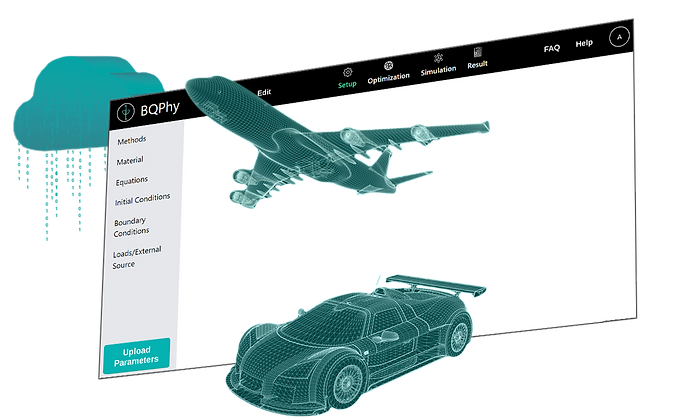Quantum computing could enable efficient simulation for racecar innovation by overcoming the computational bottleneck. Unlike the traditional computer, established on bits and bytes, quantum computing (QC) uses super-positioning and entanglement – theoretical concepts of quantum mechanics – to process information. This property allows quantum computers to perform calculations that are impractical, or even impossible, for classical computers.
QC can also account for uncertainty in its calculations, something unthinkable for a binary machine. In-house quantum computing technology infrastructure has challenges, such as circuit depth, qubit count, and noise interference. Additionally, it requires significant investment in hardware and is cost prohibitive for most firms.
Enter software venture BosonQ Psi (BQP), which has developed a proprietary hybrid quantum-classical cloud simulation algorithm software called BQPhy®. BQPhy leverages the power of quantum computing to perform simulations utilising a hybrid infrastructure of quantum computers and classical high-performance computers to highlight near-term quantum value to simulation challenges.
The software-as-a-service enterprise uses quantum-inspired algorithms to speed up virtual simulations in a proprietary multi-physics and computer-aided engineering (CAE) suite equipped with a high-accuracy solver, making BQPhy the world’s first quantum-powered simulation suite.
BQPhy finds use in advanced analysis of materials, structures, thermal phenomena and design optimisation. It explores new ways to perform simulations for future fault-tolerant quantum computers, giving it the potential to usher next-level design innovations faster and more efficiently while requiring fewer computational resources.
With motorsport being an engineering competition as much as a racing contest, engineering teams rely more heavily on simulations from CFD to digital twins and race simulators than ever before to gain a competitive edge. While multiphysics simulations help create optimised designs, engineering teams are constrained by the scalability of computational power provided by HPCs to enable complex simulations.
They often have to trade off between simulation accuracy and the time required, given the computational bottleneck that is not easily scalable….
Click Here to Read the Full Original Article at Racecar Engineering…

